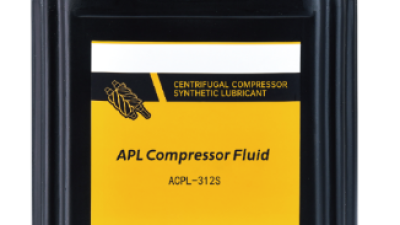How to Choose the Right Grease Lubricant for Your Industrial Needs
Table of Contents
- Understanding the Different Types of Grease Lubricants Available in the Market
- Key Factors to Consider When Selecting Grease for Industrial Applications
- The Role of Temperature and Environment in Grease Selection
- Evaluating Performance Requirements for Specific Industrial Machinery
- Common Mistakes to Avoid in Choosing Grease Lubricants
- Future Trends in Grease Technology and Their Impact on Industrial Use
- Enhancing Compressor Efficiency: Insights from Recent Industry Reports on the Benefits of ACPL-312S Lubricant
- FAQS
- Conclusion
- Related Posts
Picking the right grease lubricant really matters when it comes to keeping your equipment running smoothly and lasting longer, no matter the industry. I came across a report from MarketsandMarkets that says the global market for industrial lubricants could hit a hefty $146.24 billion by 2025. That’s mostly because everyone’s looking for better, more efficient ways to keep things moving. When industries push for higher efficiency, choosing the proper grease becomes a big deal—especially in places with high temperatures where regular lubricants might not cut it. At Shanghai Jiongcheng Industrial Co., Ltd., they focus on providing complete lubrication solutions. They’ve got a whole range of products—from compressor lubricants to high-temperature chain greases. Thanks to their cutting-edge research, top-notch labs, and quality controls, they make sure their lubricants perform really well even under tough conditions. The key is to understand exactly what your specific industrial needs are—that’s the first step in making smarter choices when it comes to lubricants. In the end, it helps boost productivity and cut down on maintenance costs.
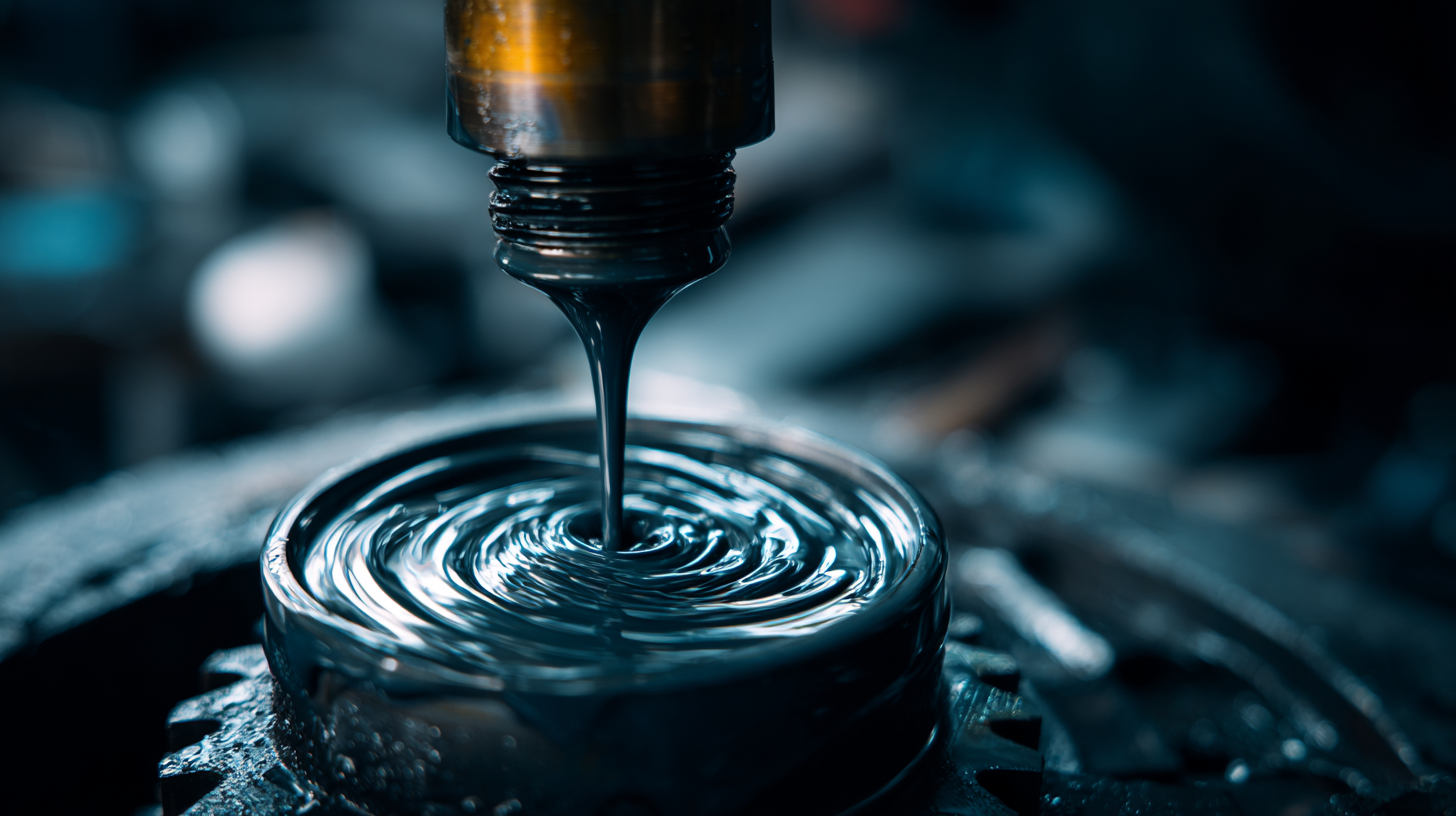
Understanding the Different Types of Grease Lubricants Available in the Market
When you're picking out the right grease for industrial use, it really helps to get a feel for the different types out there. Greases come in various formulations, mainly based on what thickening agents they use—think lithium, calcium, or aluminum complexes. For example, lithium-based greases are pretty popular because they're great at resisting water and can handle high temperatures, so they work well in everything from cars to heavy-duty machinery.
Also, did you know that the color of a grease can actually tell you a lot about what it's meant for? Sometimes, certain shades hint at what materials it’s compatible with or what kind of job it’s suited for, making it easier to pick the right one on the spot. As demand for specialized greases keeps growing—especially in areas like automotive tech and renewable energy, including electric vehicles—it gets even more important to choose the right lubricant. By 2032, the grease market is expected to hit over 8.7 billion USD, so staying informed about how different products perform is key to keeping machinery running smoothly and lasting longer.
Key Factors to Consider When Selecting Grease for Industrial Applications
Picking the right grease for industrial stuff is actually pretty important if you want your equipment to last longer and run smoother. When you're choosing a grease, there are a few key things to keep in mind. First off, the type of base oil matters a lot, since it influences how well the lubricant performs when it gets hot or experiences friction. For instance, greases that use lithium thickening are really good at handling high temperatures, so they’re perfect if heat is a big concern. Plus, the viscosity — or how thick the grease is — plays a big role in creating a protective film that prevents wear and tear. Using a grease with just the right viscosity helps keep everything moving smoothly without causing too much friction or drag.
Another thing to think about is how well the grease can handle tough environmental conditions, like moisture or dirt. These days, there's a trend toward eco-friendly options, like biodegradable and low-carbon formulas. Not only do these options work well for lubrication, but they also help companies stick to sustainability goals. As the industrial lubricants market in EMEA continues to grow—it's forecasted to hit over USD 21 billion this year—industries are encouraged to pick greases that suit their specific needs and are eco-conscious at the same time. By paying attention to the type of base oil, viscosity, and environmental compatibility, businesses can make smarter choices that boost machinery performance and cut down maintenance costs. It’s all about finding that sweet spot, really.
How to Choose the Right Grease Lubricant for Your Industrial Needs
| Application | Temperature Range (°C) | Base Oil Type | NLGI Grade | Water Resistance | Typical Additives |
|---|---|---|---|---|---|
| Electric Motors | -20 to 40 | Mineral Oil | 2 | Good | Anti-wear, Oxidation inhibitors |
| Automotive Bearings | -30 to 120 | Synthetic Oil | 1 | Excellent | Extreme pressure, Anti-corrosion |
| Heavy Equipment | -20 to 50 | Lithium Complex | 2 | Fair | Molybdenum disulfide, Rust inhibitors |
| Food Processing | -10 to 110 | Vegetable Oil | 2 | Good | Anti-oxidants, Thickeners |
| Textile Machines | 0 to 80 | Mineral Oil | 1 | Good | Anti-wear, Foam inhibitors |
The Role of Temperature and Environment in Grease Selection
When you're trying to pick the right grease for industrial stuff, it’s pretty important to understand how temperature and environment affect things. Different kinds of grease are designed to work well in specific thermal conditions, and the temperature they’re working in really impacts their viscosity and stability. For example, if you're dealing with really hot environments, you'll want greases that can handle the heat without losing their lubricating magic. On the flip side, in colder places, you need greases that stay fluid and keep things running smoothly. Think about polyurea and lithium-based greases—they're often the go-to for high-temperature stuff, while synthetic greases tend to perform better in chilly conditions.
But it’s not just about temperature. The environment where the equipment lives matters a lot too — things like humidity, dust, or exposure to chemicals can really influence what grease you should pick. If there’s lots of moisture around, you definitely want a grease that’s water-resistant so it doesn’t wash away or cause corrosion. On the other hand, if you're dealing with a dusty or rough environment, a thicker grease might be better to act as a barrier against dirt and grit. So, long story short, taking into account both the temperature and the environment is key to making sure your equipment runs smoothly and lasts longer. That way, you can cut down on maintenance costs and keep things running more efficiently.

Evaluating Performance Requirements for Specific Industrial Machinery
Alright, when you're trying to pick the right grease for your industrial machinery, it’s really important to consider what each specific application needs. Different machines face different loads, speeds, and environment factors—so what works for one might not be ideal for another. For instance, if you're dealing with high-speed equipment, a thinner grease might be better since it can penetrate more easily. On the flip side, heavy-duty machinery probably calls for a thicker, more durable lubricant to keep things running smoothly.
**Tip:** Think about the operating temperature where your equipment sits. Using a grease that can handle extreme heat or cold will help keep your machinery in good shape and perform at its best. Also, don’t forget to consider exposure to dirt, water, or dust. Greases that are resistant to these contaminants can really help extend the life of your gear.
Another important thing to keep in mind is whether the new grease you choose will play nicely with what you’ve already got in there. Mixing different types of grease isn’t always a good idea — it can lead to performance problems or even damage your equipment. So, always double-check for compatibility before switching.
**Tip:** Take a look at the manufacturer’s recommendations for lubricants and stick to those guidelines. Doing regular maintenance checks is also a smart move — it helps catch signs that your grease might need a re-up or a different product to keep everything running smoothly.
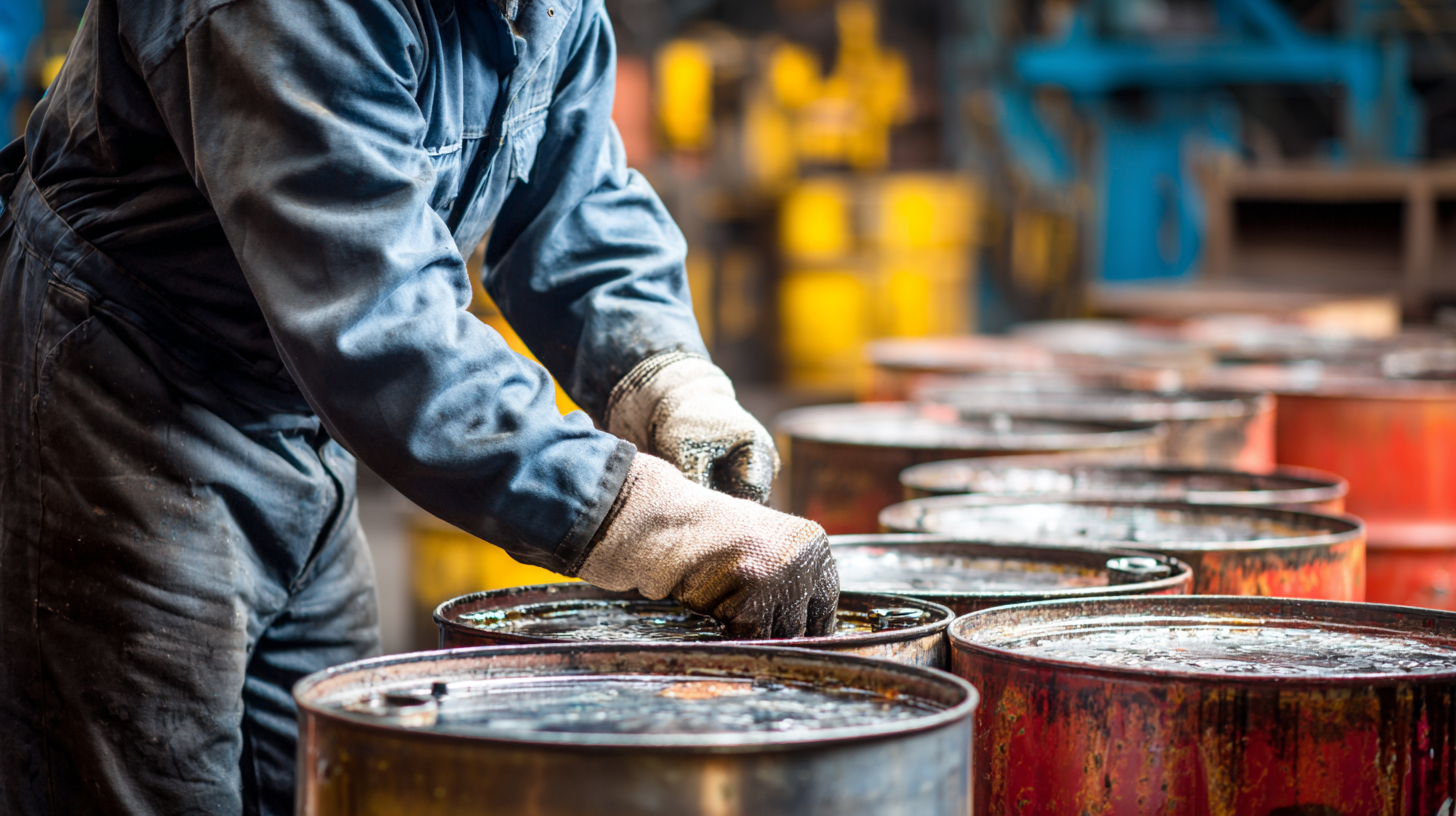
Common Mistakes to Avoid in Choosing Grease Lubricants
When you're choosing grease lubricants for your industrial equipment, it’s super important to avoid some common pitfalls—otherwise, you might end up with issues down the line. One big mistake people make is not paying enough attention to the operating environment. You see, conditions like really high or low temperatures, moisture, or exposure to chemicals all call for specific types of grease. Ignoring that can lead to your machinery breaking down sooner than expected or just not working as smoothly as it should.
Another thing folks often do is put cost ahead of quality. Sure, it’s tempting to grab the cheapest option, but trust me, investing in good-quality grease pays off in the long run. It can make your equipment run better and last longer. Oh, and don’t forget about chatting with the manufacturer or lubrication experts—they know their stuff. Skipping those conversations and just guessing can mean you end up with the wrong product, which might cause unnecessary downtime and extra maintenance woes. Always check recommendations and talk to pros—you’ll thank yourself later for making smarter choices that fit your equipment’s needs.
Grease Lubricant Selection Criteria
Future Trends in Grease Technology and Their Impact on Industrial Use
As industries keep evolving, the grease lubricant market is seeing some pretty major shifts—mainly fueled by a push towards sustainability and the latest tech advances. I came across some recent market research from Custom Market Insights, and it’s pretty interesting: they’re projecting the global industrial lubricant market to hit around $42.45 billion by 2034, growing at a compound annual rate of about 5.12%. That’s a clear sign that people are looking for lubricants that not only boost performance but are also kinder to the environment.
Looking ahead, the trends in grease tech seem to be all about adopting Industry 4.0 practices—basically, smarter, more connected manufacturing processes that help optimize lubricant use for better efficiency. Things like bio-lubricants and MQL (or Minimum Quantity Lubrication, if you wanna sound cool) are gaining traction. They’re especially making a difference in sectors like aerospace, where sustainable machining is a big deal. These innovations are super important because, let’s face it, industries are trying to stay resilient and innovative—improving productivity without wrecking the planet.
Oh, and a quick tip—when you’re choosing a grease lubricant, make sure it’s compatible with your equipment, so you don’t end up with early failures. Also, check out its environmental impact—if possible, go for bio-based options to stay on top of your sustainability game. Finally, keep an eye on the latest trends and new tech out there; being informed helps you pick the best lubricants for making your operations smoothly, efficiently, and eco-friendly.
Enhancing Compressor Efficiency: Insights from Recent Industry Reports on the Benefits of ACPL-312S Lubricant
The pursuit of enhanced efficiency in compressor systems has led to significant advancements in lubricant technology, particularly with the introduction of ACPL-312S. Recent industry reports indicate that this advanced lubricant can dramatically improve the performance and lifespan of compressors. By utilizing a sophisticated blend of three kinds of hydrogenated base oil, ACPL-312S offers superior thermal stability and oxidation resistance, crucial for high-load applications.
Moreover, the inclusion of high-performance compound additives further elevates the operational capabilities of the lubricant. These additives are engineered to reduce friction and wear, ensuring smoother operation under varying conditions. This improvement translates into less downtime and maintenance, making it an ideal choice for industrial applications seeking reliability and efficiency. As industries face increasing demands for energy efficiency, adopting lubricants like ACPL-312S is not just an option but a strategic necessity.
FAQS
: The main types of grease lubricants include lithium, calcium, and aluminum complex greases, classified based on their thickening agents.
Lithium-based greases are popular due to their excellent water resistance and high-temperature stability, making them suitable for a variety of applications, including automotive and heavy machinery.
The color of industrial grease can indicate compatibility with specific materials or applications, assisting in easy identification and selection for particular uses.
Key factors include the type of base oil, viscosity, environmental resistance, and alignment with sustainable practices like biodegradable formulations.
Operating temperature influences grease viscosity and stability; high-temperature environments may require greases that can withstand intense heat, while low-temperature settings necessitate greases that remain fluid.
Environmental factors such as humidity, dust, and chemical exposure can dictate the type of grease needed; for instance, moisture-resistant greases are essential in wet conditions, while thicker greases may provide better protection in dusty environments.
Selecting the appropriate grease is crucial to maximizing machinery efficiency and longevity, leading to improved performance and reduced maintenance costs.
The growing demand for specialized greases, particularly in sectors like automotive and renewable energy, as well as a focus on eco-friendly practices, are significantly influencing the grease lubricant market.
Conclusion
In today’s world of heavy industry, picking the right grease for your machinery isn’t just a small detail — it’s actually pretty critical if you want everything to run smoothly. The first step? Getting familiar with the different kinds of greases out there. It’s not just about pick any grease and hope for the best — you’ve gotta think about what your machines actually need, the temperatures they’ll be exposed to, and the environment they’re working in. Plus, every application can have its own unique performance needs, so it’s a bit of a balancing act. And honestly, avoiding the common slip-ups when choosing lubricants is a game changer — using the wrong stuff can lead to breakdowns and sky-high maintenance costs, which nobody wants.
Here at Shanghai Jiongcheng Industrial Co., Ltd., we’re all about offering end-to-end lubrication solutions, especially for high-temperature situations. Thanks to our top-notch technology and careful quality checks, we make sure our grease, whether it’s for compressors or vacuum pumps, hits the mark and meets industry standards. We’re also pretty forward-thinking — always keeping an eye on the latest trends in grease tech. Our goal is simple: help our clients easily figure out what they need and keep their equipment running without a hitch.
Related Posts
-
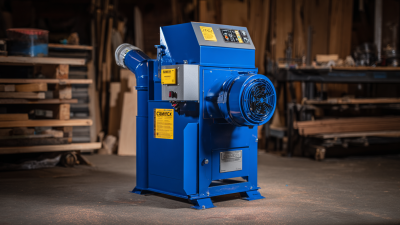
7 Best Craftex Dust Collector Reviews for Efficient Industrial Use
-
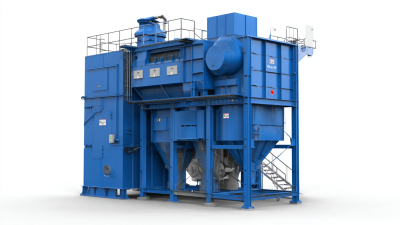
2025 Market Insights: Best Reliant Dust Collector Model 720 as a Game-Changer for Global Procurement Trends
-
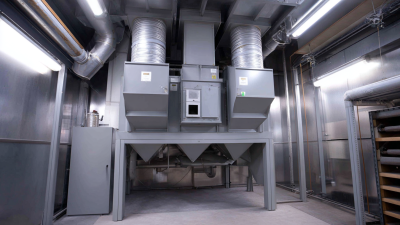
The Ultimate Guide to Craftex Dust Collector: Insights, Reviews, and Buying Tips
-

Top Strategies for Choosing the Best Sunflower II Led Nail Dust Collector
-

2025 Trends in Woodworking: The Ultimate Comparison of the Best Miter Saw Dust Collectors
-
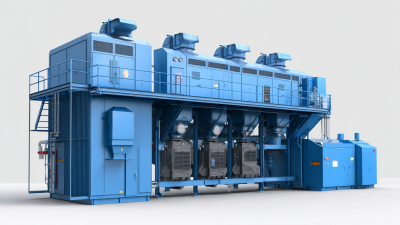
Discover Outstanding Products from China with the Best Reliant Dust Collector 720 for Global Buyers
Blog Tags:

